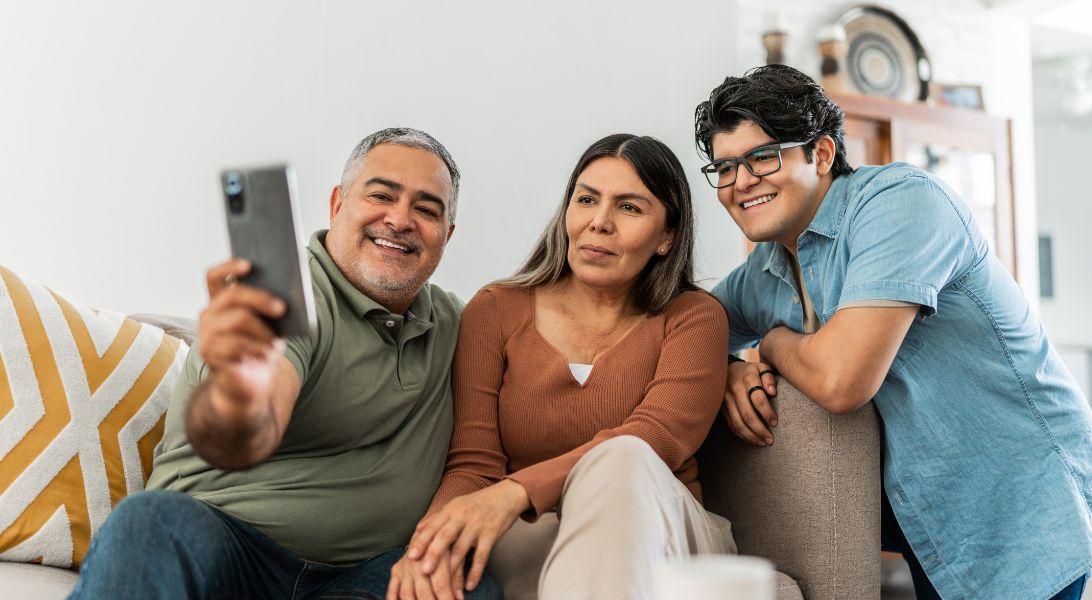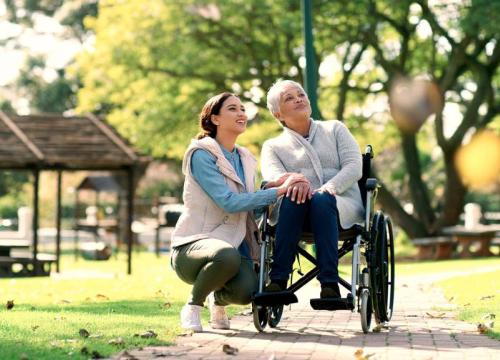For Care Partners
Parkinson’s disease progresses over time — so does your role as a care partner. Explore all stages of the care partner journey and practical tips that can help along the way.

💡 Quick Summary
-
Care partners play an evolving role as Parkinson’s disease progresses, offering emotional, physical and practical support throughout each stage.
-
The Parkinson’s Foundation provides care partner resources, including dedicated webpages, online courses, local chapters and guidance.
-
Building a strong support network helps reduce burnout, strengthen relationships and improve quality of life for both care partners and people with Parkinson’s.
Parkinson’s disease (PD) is a progressive disease, meaning that it changes over time. Your role as a care partner and your level of involvement will also evolve along the way.
It’s important to define “caregiving” for yourself. Especially early in the Parkinson’s journey, when you might not feel like you are actually “giving” care. Similarly, your loved one might not see himself or herself as someone in need of care. Remember, care is not limited to physical tasks. Care can be emotional and spiritual as well as physical.
Whether you care for someone who is recently diagnosed, adapting to new challenges of PD progression or living with the disease for a long time, a strong support network is essential for your well-being as a care partner and the person with Parkinson’s.
Making sure to take care of yourself can help create a productive partnership that minimizes stress and conflict. Benefits include revitalized energy, renewed interest in creative endeavors, and the realization that you and your partner are not alone.
Early in the Journey
How do I adapt to a diagnosis? What should I expect as the disease progresses? We answer these and more.
Caring for the Care Partner
Learn the signs of caregiver strain and burnout, and how to address them. We also provide advice for balancing work and caregiving.
Caring From Afar
We define the terms primary and secondary care partner, and ways long-distance caregivers can help.
Related Pages:
Getting Outside Help
When is it time to consider outside help? Learn more about where to find help, and how to prepare an outside caregiver.
Planning Ahead
Thinking about the future can be overwhelming. Start here, with these articles about logistical planning, emotional planning, palliative care and advanced care planning.
Advanced Parkinson’s
If your loved one is in the advanced stages of Parkinson’s, we delve into addressing movement and communication challenges, along with activities of daily living.

Practical Pointers
Explore tips for managing day-to-day Parkinson's challenges and ways to help keep your loved one safe at home. Prepare for your loved one's next medical appointment with these tips.
Our Top Care Partner Resources
- Contact our Helpline. Talk to a Helpline specialist at 1-800-4PD-INFO (1-800-473-4636) or helpline@Parkinson.org for up-to-date information about Parkinson’s, referrals to care professionals, local resources and more.
- Connect with your local Parkinson’s Foundation Chapter. Find your local Chapter for nearby programs, support groups, and events, such as Moving Day, A Walk for Parkinson’s, and join us in raising PD awareness and funds.
- Attend free care partner courses. Our Care Partner Program: Building a Care Partnership offers a series of self-paced online courses that feature conversations with care partners, lessons from health professionals and more.
Related Materials
Related Blog Posts

5 Care Partner Tips for Managing Mid-Stride Parkinson’s Symptoms

Staying Healthy as a Care Partner

Male Care Partners Share Their Top Lessons Learned
Join the Fight Against Parkinson's
Support ground-breaking research, care and community outreach